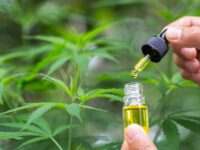What You Need To Know About the HPV Vaccine

What Is HPV Anyway?
HPV, also known as human papilloma virus, is the most common STD worldwide. HPV can only be contracted through sexual contact. You must be sexually active to contract HPV. You cannot contract HPV by just kissing or like the common cold, through germs. HPV can only be contracted through vaginal, oral or anal sexual contact.
Why Are Some People So Against This Vaccine?
Like so many other issues, anything touching upon the subject of sexual health can be controversial. There is some confusion over whether this vaccination condones early sexual activity. While some groups and communities dislike all vaccinations, despite extensive scientific testing, it is considered at this point that the safety and preventative measures of the HPV vaccination in particular far outweigh any opposition based merely on morals.
What Is The HPV shot Really For?
The HPV vaccine was developed to target strains of HPV that are most likely to develop in to cancers like, oropharynx cancer, vaginal, vulva and anal cancers. HPV can also lead to genital warts. Cancers from HPV can be progressive, difficult to treat and frequently have a low survival rate. That being said, the majority of HPV strains are still easily treatable.
Is The HPV Vaccination For Just Girls, Or Can Boys Receive It Too?
Doctors now recommend that boys, as well as Girls aged 11-12 receive the HPV vaccine. Routine vaccinations are suggested for both sexes easily to be administered at your Pediatrician, or GP office. Doses are administered now in two doses with six months wait between dosage.
At What Age Is It Too Late To Receive The HPV Shot?
Doctors and clinicians now are recommending the HPV virus for young people aged 9-26 years old. The reasoning behind this age grouping for recommendation is, that this vaccine is less effective after sexual contact and exposure. Luckily for all of us, the Food and Drug Administration has only recently approved expanding the use of one form of the this vaccine, Gardasil 9, to include people between the ages of 27 and 45 in an effort to reduce cancers and infection due to four common strains of HPV.
How long Has This Vaccine Been Available?
Thirteen years ago(2006)the first teen girl was vaccinated against HPV in England. Despite much disapproval against the vaccine the HPV vaccination has been hugely successful in suppressing HPV and certain cancers, in countries where screening programs are readily available. Especially in countries where boys are included in vaccinations, the HPV vaccine has seen an extraordinary record as a preventive resource.
Is The HPV Vaccination Safe?
The HPV shot is considered very safe. Like all vaccines people do sometimes have mild side effects. Side effects are reported to be swelling in arm, mild fever, headache and muscle or joint pain. Be rest assured in the fact that the HPV shot was first tested on thousands of test subjects before becoming readily available to the public.
Does The HPV Vaccination Last For Life?
So far, the vaccine has been proven to have lasting results. Any loss of capability over time has not been reported with the HPV vaccination. Data is only of course available for covering the last 13 years, since the time of inception. Further studies will show better the length of time that these vaccines are effective. Doctors are currently recommending a protection of 6 years. Additional studies will show whether immunity is long-lasting or if a booster shot may be necessary.
Is The HPV Vaccination Painful?
Some people report having some mild pain in the arm after their shot. Usually this pain does not last, but goes away swiftly and without incident. Some initial swelling does sometimes occur at the site, however. An ice pack is recommended to reduce any swelling.








